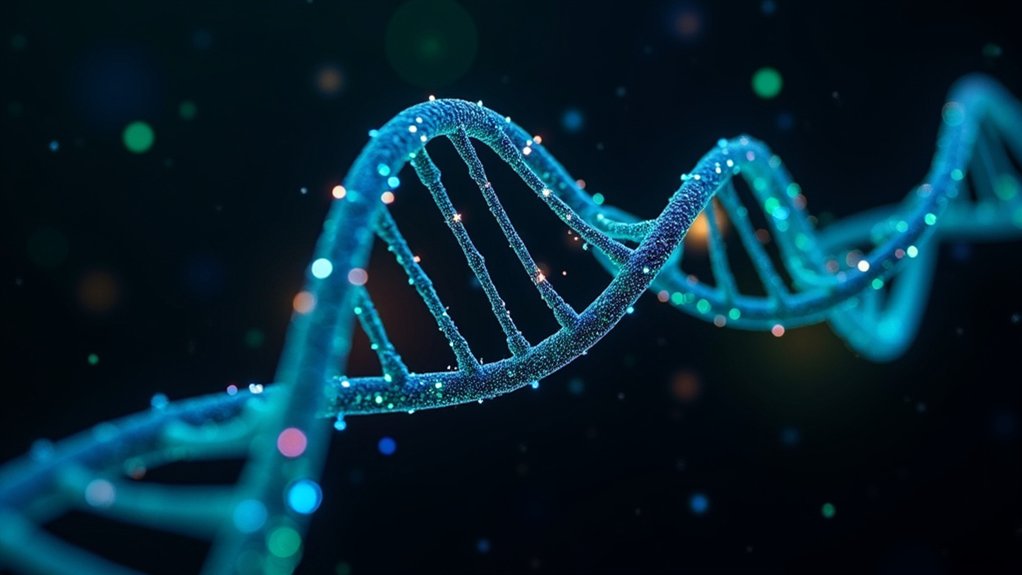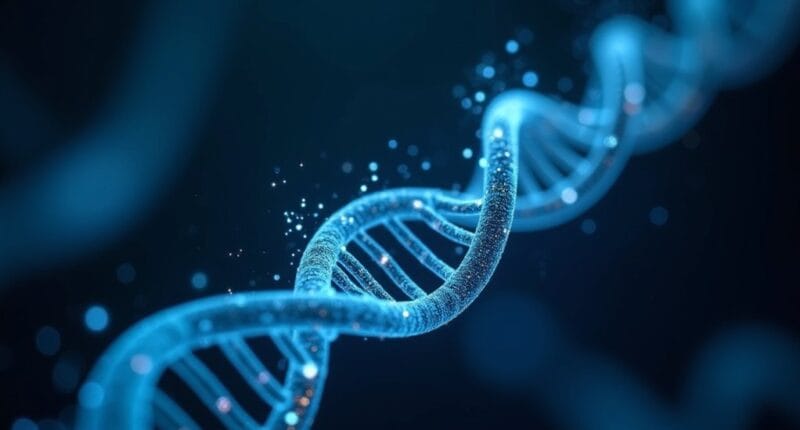Scientists are turning DNA into tiny biological computers, and it’s pretty mind-blowing. These molecular machines can process complex information, spot diseases, and deliver drugs with scary precision. DNA computers analyze multiple genes simultaneously, while smart nanoparticles act like microscopic submarines targeting cancer cells. This revolution in personalized medicine means treatments tailored to individual genetic profiles – no more one-size-fits-all approaches. The future of medicine just got a whole lot smarter.

DNA isn’t just the blueprint of life anymore – it’s becoming the brain inside our medical treatments. Scientists have figured out that DNA can actually compute things, sort of like a tiny biological laptop. They’re using it to create sophisticated diagnostic tools that can analyze multiple genes at once and even help synthesize new drugs. Pretty wild, right?
These DNA computers are revolutionizing how we approach personalized medicine. Think about it: intelligent biochips that can make decisions about your treatment plan based on your specific genetic makeup. They’re lightning-fast at sequencing DNA and can spot those pesky mutations that cause diseases. It’s like having a microscopic doctor that knows exactly what’s wrong with you at a molecular level. The development of functional DNA sequences has been crucial to making these advances possible. Recent breakthroughs have shown that general-purpose DICs can solve complex mathematical equations while identifying disease markers.
The really cool part is how DNA computers are changing drug delivery. They’ve engineered these smart nanoparticles that can actually figure out where to deliver medicine in your body. No more carpet-bombing your system with drugs – these things are precise. They’ve even created DNA logic gates that act like tiny security guards, only releasing medication when they encounter specific cellular conditions.
Cancer treatment is where things get seriously interesting. Scientists have developed DNA structures that work like tiny drug-carrying submarines, sneaking through the body until they find cancer cells. Then – boom! – they release their payload exactly where it’s needed. No collateral damage to healthy tissue.
These systems are so smart they can actually analyze multiple cancer markers at once and adjust their approach accordingly. The diagnostic tools they’re creating are straight out of science fiction. DNA logic gates performing Boolean operations – basically yes/no decisions – to detect disease patterns.
They’ve got programmable biosensors that can spot pathogens with incredible accuracy. It’s like having a molecular detective agency working inside your body. The future of medicine isn’t just about treating diseases – it’s about outsmarting them with DNA computers that can think faster than the diseases can spread.




